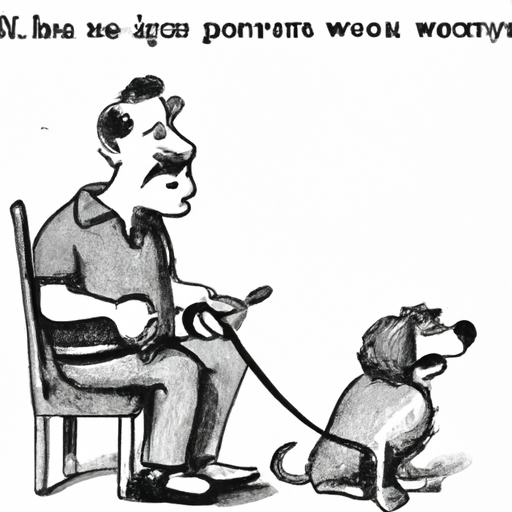Introduction
As a caregiver, you are the first line of defense for your four-legged companion. Being aware of the subtle signs that something might not be right with your pet is vital. One of the common issues that dogs encounter is worm infestation. Knowing the symptoms can help detect the problem early and get your pet the help they need.
1. Changes in Appetite
Your dog’s appetite can be a significant sign of their overall health. If you notice an unusual increase or decrease in their hunger levels, it could be a sign of a worm infestation.
- Increased Appetite: Some types of worms, like tapeworms, live in a dog’s intestine and absorb the nutrients from the food your dog eats. This could make your dog feel constantly hungry.
- Decreased Appetite: On the other hand, worms could also cause your dog to feel unwell and lose their appetite.
2. Digestive Issues
Observe any changes in your dog’s digestive system. Regular inspection of their stools is not the most glamorous part of pet ownership, but it’s necessary.
- Diarrhea: This can be a sign of different types of worms, such as whipworms.
- Vomiting: Worms can irritate your dog’s stomach, causing them to vomit.
| Worm Type | Symptoms |
|---|---|
| Tapeworms | Increased appetite, visible segments in stool |
| Whipworms | Diarrhea, weight loss |
| Heartworms | Coughing, fatigue, weight loss |
3. Changes in Appearance
The overall appearance of your dog can also indicate the presence of worms.
- Weight Loss: Despite eating normally or even more than usual, your dog may start losing weight.
- Dull Coat: A shiny coat often signifies good health. If your dog’s coat appears dull or rough, it may be a symptom of worms.
4. Behavioral Changes
You know your dog’s behavior better than anyone else. If you notice any changes such as lethargy, irritability, or unusual aggression, it might be time for a vet visit.
5. Visible Worms
In some cases, you may even see worms or segments of worms in your dog’s stool or around their rear end. This is a clear sign that your dog has worms. Don’t panic, but do contact your vet immediately.
Frequently Asked Questions (FAQs)
Q: Can humans catch worms from dogs?
A: Yes, some worms can be transmitted from dogs to humans.
Q: How often should I deworm my dog?
A: Most vets recommend deworming at least twice a year, but it can depend on your dog’s lifestyle and health.
Q: Are certain breeds more susceptible to worms?
A: No specific breed is more susceptible, but puppies and elderly dogs are often at greater risk.
Q: Can worms be fatal to my dog?
A: In severe cases, worms can cause serious health issues and even be fatal. Regular vet check-ups are the best preventive measure.
Remember, your vet is the best source of information when it comes to your pet’s health. If you notice any of these symptoms, don’t hesitate to reach out to them.



